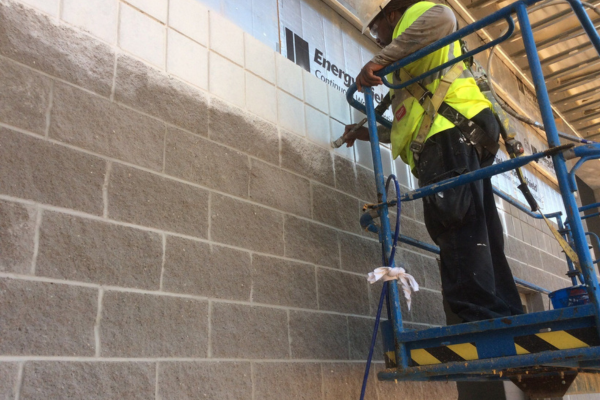
Many industrial projects require some form of waterproofing or sealing for normal operations. Not only do sealants keep moisture out, they can also be used to keep dust and dirt from building up in cracks, and even reduce noise and airflow through a space. With all of these different uses for industrial sealants, it is important that you know exactly what type of sealant you need, and how it will hold up in your unique environment.
What are You Trying to Accomplish?
The type of sealant that you choose will largely depend on what you are trying to accomplish. Different sealant types excel at different tasks. For instance, the sealant you use to protect against dirt or temperature fluctuations will likely be different from the sealant that you would use for waterproofing. There are several multi-use options on the market as well, so you need to be clear about what features you do and do not need out of your coating.
Where will the Sealant Be Applied?
Your next consideration will be what kind of material you will be applying these coatings or sealants too. This is extremely important because some materials like concrete are very porous, while other materials like metal are non-porous. The effectiveness of the sealant will depend on whether or not it can properly adhere to the intended material.
How will the Sealant Cure?
Depending on how and where your sealants or coatings are applied, you may be faced with some challenges regarding curing times. Some coatings require lengthy curing times with special equipment, while others cure relatively quickly at room temperature. The cost of each option will likely reflect the amount of effort that goes into properly curing the sealants.
Surface Preparation
Aside from the considerations mentioned above, you will also have to pay close attention to how your surfaces are prepared before treatment. A thorough cleaning is an absolute must if you want the caulking or sealant to adhere to the surface without peeling later. Depending on what type of coating is already on the material, whether painted or not, you may also need to take additional steps to ensure proper adhesion.
Sealant Types
The list of sealant types is quite extensive, but there are a few common types that you will see. Most people are familiar with epoxy coatings that provide a glossy, durable finish and protect surfaces. We are also used to seeing caulking applied in bathrooms and areas with high moisture where a strong seal is required. Other options include silicone, acrylic, polyurethane, and other polymers that are specifically formulated for industrial use. You should always consult a professional about what type of sealant is most common for your intended purpose, and get recommendations for any brands or varieties that are best suited to your needs. A coatings expert will be able to guide you toward the right product and save you money in the long term, while also guaranteeing that your sealants are properly applied and will live up to your expectations in any environment.
Industrial applications of waterproofing, sealant, and caulking are extremely important. If you have an industrial project requiring these treatments, you need to make sure that you research all of your options before you buy. Sealants come in many varieties, and they are all designed to work within a specific set of conditions to provide you with the seal you need. Most importantly, make sure that you buy the right type of sealant for your needs and don’t cut corners on the application process if you want to get a long life out of your finished products.






